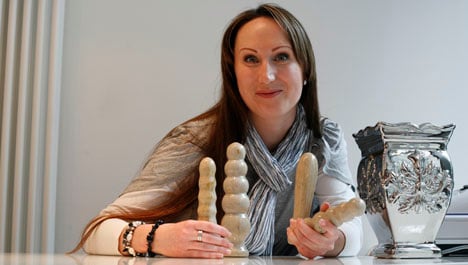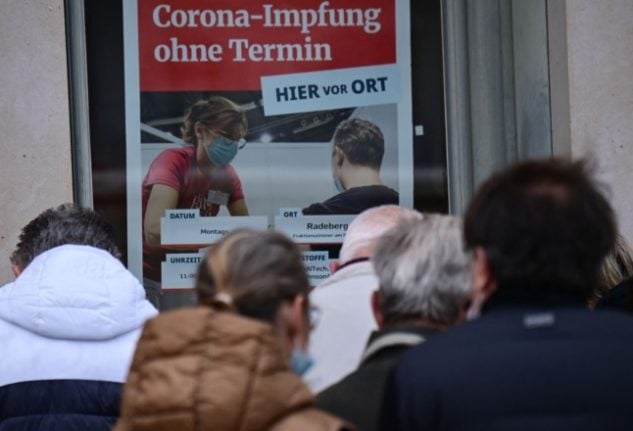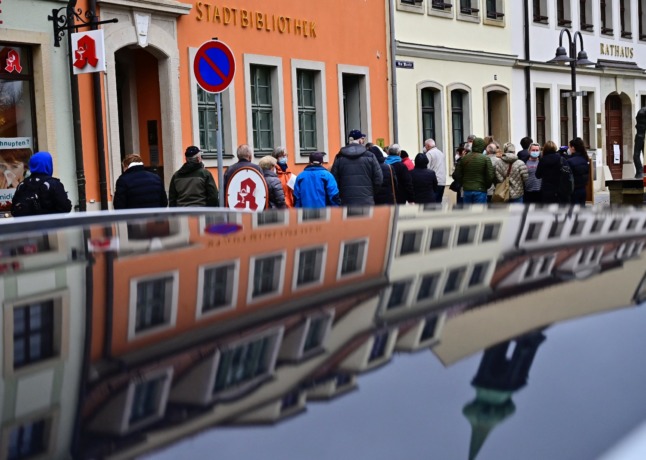The collection of sexy unmentionables in Dina Stiebing’s window display garners ample attention from people passing by her store, but its the stone dildos that have been turning heads most recently.
After travelling the world for six years as a pole dancer, Stiebing returned to Dresden to open “Fem2Glam” with the aim of bringing international style to the city’s erotic performers.
“Nothing compares to home, sweet home,” the 31-year-old told The Local this weekend.
Her rooted philosophy extends to her Prager Straße store’s most provocative item, the “RelaxSTONE” dildos, made of sandstone native only to the Dresden area.
CLICK HERE FOR MORE PHOTOS OF THE ELBE SANDSTONE DILDOS.
“I grew up climbing all over boulder formations of Elbe sandstone near what they call the ‘Gateway to Saxon Switzerland,’” she said, referring to the nearby mountainous national park that is popular with rock climbers.
“These items are a special piece of the region.”
Stiebing’s cousin, a stonemason, told her about the designer dildos which RelaxSTONE manufacturer Jan Lorenz began making and selling online last year, and she was determined to become Dresden’s first retail seller.
The idea to create stone dildos came from a job commissioned by a friend to create a replica of a phallic crag called Felsen Barbarine in Saxon Switzerland, where 30-year-old master stone mason Lorenz told The Local he also enjoys climbing. A bit of research by the Wehlen-based craftsman revealed that stone had historically been used to construct sex toys, but had no significant presence on the modern market.
He chose Elbe sandstone out of what he called “local pride,” describing how architects in the region have used it for hundreds of years.
“The stone has a warm, sunny colour that’s simply beautiful, and all the pieces are one-of-a-kind,” he said.
Lorenz now awaits patent approval for his dildos, which are coated with a smooth, waterproof, dishwasher-safe glaze, and sell for between €85 and €120.
While all but the most adventurous would be loath to associate the words “sand” and “stone” with sex toys, Lorenz told The Local there’s nothing to fear.
“When people first hear about it they are a bit afraid that it will be too heavy, too hard or too cold. But when they hold it in their hands they see it’s not heavy at all, and takes on their body heat,” he said.
Store owner Stiebing said many customers have been particularly impressed by the dildos’ thermal properties, while others are anxiously awaiting the release of RelaxSTONE’s vibrators, made from the same sandstone material.
The latter are still in the testing phase, but Lorenz said he is already planning to further expand the product line, which already includes massage tools and other sex toys.
This week he awaits a truckload of colourful stone from around the world, which could mean that anyone can have a souvenir dildo made from their regional rock of choice.
“We want blue, green, yellow, gold flecks, or whatever people fancy,” he said.
It’s not the first time Germans has turned to natural materials to make sex toys. A whole family from the Odenwald forest made headlines in 2008 for their “Waldmichlsholdi” handmade spruce wood dildos.




 Please whitelist us to continue reading.
Please whitelist us to continue reading.
Member comments